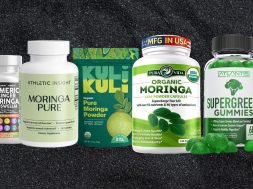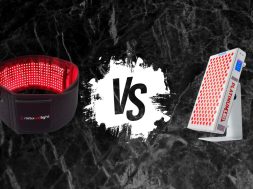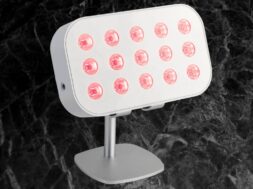
Everyone interested in using “smart drugs” to boost their brain power is familiar with the brand Alpha Brain. Hunter Focus is a much more obscure name, but I want to point your attention to it because it is one of the most potent nootropics on the market, not to mention being reasonably priced.
This detailed comparison will guide you through the specifics of the two products and should make your choice between them clear.
Hunter Focus is better in every conceivable way. It has one of the most extensive formulations on the market, and most of the dosages match the literature. It is a stimulant nootropic with a comprehensive list of components providing long-term brain health and power benefits.
The only area Alpha Brain is better in is the price. Despite its popularity and marketing, the Onnit product trails behind the better nootropics on the market, such as Hunter Focus, not because the formula is bad but because the ingredients are underdosed.
| Feature | Winner |
|---|---|
| Ingredients | Hunter Focus |
| Dosage | Hunter Focus |
| Short-Term Effects | Hunter Focus |
| Long Term Effects | Hunter Focus |
| Third-Party Testing | Draw |
| Clinical Research | Alpha Brain |
| Side Effects | Draw |
| User Reviews | Alpha Brain |
| Price | Alpha Brain |
Winner
Hunter Focus is a much better nootropic because it contains many more ingredients and has higher dosages than many other nootropics, including Alpha Brain.
But based on my experience with each nootropic supplement, neither Alpha Brain nor Hunter Focus hold a light to Mind Lab Pro.
Mind Lab Pro has 3 clinical studies backing it’s formula and is a non-stimulant nootropric to enhance short and long term brain function.
What Is Hunter Focus?

Hunter Evolve, a member of the Roar Ambition family, is a premium supplement brand aimed at the top echelons of the fitness, business, and health industries.
The brand distinguishes itself by providing high-quality, research-backed products aimed at individuals seeking to improve their physical health, cognitive performance, and overall lifestyle without compromise.
Hunter Focus follows this company norm and is advertised as a premium nootropic using safe, tested ingredients that have been scientifically shown to deliver the cognitive advantage you want.
The comprehensive formula at the heart of this supplement provides the nutrition your brain requires to perform at its peak, even under duress.
Hunter Focus has a lot of ingredients and you can learn more about each one in my extensive Hunter Focus review.
What Is Alpha Brain?

Alpha Brain is a nootropic developed by Onnit Labs, a well-known manufacturer of health and fitness products and equipment. Joe Rogan, Onnit co-founder and celebrity, has endorsed the product, contributing significantly to its success.
This product is marketed as a cutting-edge, caffeine-free brain blend that can improve cognitive performance. It was one of the first nootropic compounds tested in double-blind, placebo-controlled trials.
It is appropriate for students, professionals at work, gamers, entrepreneurs, and many other groups seeking optimal cognitive function.
I’ve tested it and share my experience in my Alpha Brain review.
Hunter Focus vs. Alpha Brain Pro Main Differences

Benefits
Hunter Focus is for men and women in their prime who want to stay at the top of their game. The mixture contains 14 active substances and a few vitamins, all of which have been clinically confirmed to be beneficial.
Hunter Focus stands out not only for its long list of components, which are featured in other nootropics but also for its greater dosages than many of its competitors.
The mixture improves memory and mood, sharpens attention and concentration, boosts creativity, and increases energy.
Alpha Brain is a comprehensive brain supplement that improves memory, focus, and cognitive function. The mixture contains multiple substances recognized as effective brain enhancers.
Onnit touts the supplement as the “ultimate way to get in the zone” via increasing brain wave activity. Alpha Brain also works by regulating the amounts of acetylcholine, a vital neurotransmitter.
Ingredients
Hunter Focus and Alpha Brain adhere to the current understanding of mental enhancement and do not deviate from the norm, meaning all ingredients are tried and tested and are common for many other products on the market.
Where Alpha Brain falls rapidly behind Hunter Focus is in the ingredients list. Instead of providing exact dosages like Hunter Focus, Alpha Brain uses three proprietary blends containing a few ingredients each. They are called the Onnit Flow, Focus, and Fuel blends.
One major distinction between the two is the presence of caffeine in Hunter Focus. The popular stimulant is combined with L-theanine, like in other good nootropics, because the combination provides consistent increases in energy and mood.
Their combined power can improve working memory, reaction time, visual processing speed, and alertness while decreasing mental and physical fatigue. [12,13].
Alpha Brain also contains L-theanine, which is still an effective ingredient on its own, used to alleviate stress and anxiety. It also enhances verbal fluency and executive function [1] [2].
The two supplements also contain L-tyrosine, which is especially useful when you must handle multiple tasks simultaneously [3]. Hunter Focus has a solid 500 mg dose, while Alpha Brain is likely around 200 mg.
Bacopa monnieri is another nonsurprising inclusion in both products. According to research, Bacopa may help with verbal learning, memory development, and delayed recall [4]. Hunter Focus contains a much higher dose of 300 mg, while Alpha Brain likely has 100.
Next on the list of shared ingredients is Phosphatidylserine. Supplementation with the substance has been shown to increase cognitive function, especially in elderly individuals experiencing cognitive decline.
Hunter Focus contains 250 mg of Citicoline, which may optimize brain networks and boost neuronal regeneration, focus, mental energy, and memory. [9][10]. Citicoline boosts brain cell membrane formation by up to 26% and brain energy by 13.6%
Rhodiola Rosea is a herbal adaptogen that strengthens mental and physical stress resistance, boosts mood and lessens symptoms of anxiety and sadness [5]. Hunter Focus has 50 mg.
A Hunter Focus ingredient I am fond of is Lion’s Mane Mushroom. This mushroom shows tremendous promise for reducing stress while enhancing working memory, attentiveness, and reaction time [6][7].
Pine Bark extract, a potent antioxidant, possibly improves focus, short-term memory, and blood flow [8].
L-carnitine has inconsistent results in tests for cognitive enhancements, but it has a well-documented positive impact on physical activity, including improved recovery, muscular oxygen supply, stamina, and reduced muscle soreness. The research on brain health is inconclusive, but L-carnitine may have some benefits as a nootropic [14,15].
Hunter Focus also includes the traditional herbal remedy Ashwagandha, which is used to treat a variety of problems. A study found it lowers cortisol and relieves stress [16]. It also reduces anxiety and fatigue.
Another well-known nootropic plant is Ginkgo Biloba. Ginko improves blood flow to the brain, which helps reduce cognitive loss in seniors and may help lessen the impact of Alzheimer’s [17,18].
Spanish Sage, Panax Ginseng, and Maritime Pine Bark Extract also complement the long list of potentially beneficial substances in Hunter Focus.
Alpha Brain lists Cat’s Claw as a standalone ingredient rather than a blend component. The time-honored herb improves cognitive performance and is frequently utilized in nootropics.
The other two compounds in Alpha Brain worth noting are Alpha GPC and Pterostilbene. Alpha GPC may improve cognitive performance, while Pterostilbene counteracts age-related mental decline.
Stimulant vs. Non-Stimulant

Hunter Focus is a stimulant nootropic since it contains caffeine, which is a legal stimulant most people are familiar with. In addition to the other nootropic substances and potential advantages, caffeine, particularly when paired with L-theanine, always provides a near-instant boost in energy, mood, and focus.
Caffeine’s negative effects are also well documented. They may include anxiety, irregular heartbeat, difficulty sleeping, and irritability.
L-theanine is also quite effective in reducing possible adverse effects, but it will not save your sleep if you consume caffeine too late in the day, so keep that in mind.
The regular version of Alpha Brain I tested and used for this comparison is a non-stimulant nootropic. There is another product version available named Black Label, which has caffeine and a few additional ingredients.
Short vs. Long-Term Effects
For non-stimulant nootropics, the effects are usually noticed around the second week of administration, with optimal results achieved after 2 or 3 months, depending on the formulation and the individual.
Hunter Focus is both a short- and long-term product. The caffeine provides fast results, while the rest of the extensive formulation delivers long-term effects after the substances accumulate in the body.
Clinical Research
Alpha Brain was the first nootropic company to publish peer-reviewed studies on their product. After 6 weeks, it was discovered taking Alpha Brain significantly enhanced delayed verbal recall and executive functioning compared to a placebo group.
However, the big flaw in this study is that it was paid for by Onnit, which possibly skews the result in their desired direction.
Hunter Focus lacks an extensive complete formula study. However, all the components have been studied to varying degrees and are widely used in modern (and traditional) medicine to improve brain function.
Side Effects
In general, the two products have no significant known side effects. All ingredients are natural and commonly used alone or in combination in various other products, making them considerably safe.
The possible side effects of Hunter Focus and Alpha Brain include headaches, stomach issues, loss of appetite, dizziness, and confusion. My experience with both products has been without problems.
As I noted in the stimulant part, Hunter Focus contains caffeine, which bears the same risk of adverse effects as any other caffeinated supplement.
User Reviews
Unfortunately, Hunter Focus’s website lacks a dedicated user review section; instead, it features cherry-picked testimonials, which mean little. It is a great product, but the lack of the functionality to leave and read user reviews is poor practice.
Being recommended by Joe Rogan is one of the best advertisements a product can receive, which is why Alpha Brain has nearly 30,000 Amazon reviews and 7,000 on its website.
The score on Amazon is 4.3, whereas on the website, it is 3.5. Many customers report feeling no effects, but a high rating from so many reviews suggests overall satisfaction with the product.
Price
| Product | 1 / 1 Bottle | 1 / 2 Bottles | 1 Sub / 4 Bottles |
|---|---|---|---|
| Alpha Brain | $34.95 / 15 servings ($2.33/serving) | $79.95 / 45 servings ($1.78/serving) | $67.96 / 45 servings ($1.44/serving w/ subscription) |
| Hunter Focus | $90 / 30 servings ($3.00/ serving) | $180.00 / 60 servings ($3.00/serving) | $270 / 120 servings ($2.25/serving) |
My Experience With Hunter Focus And Alpha Brain

As expected, Hunter Focus works brilliantly, while I can’t say the same for Alpha Brain.
Given that Hunter Focus has caffeine and L-theanine, I could always rely on it to start my day on the right foot. But this is not all of it.
Then, in week two of my test, I observed a modest improvement in my focus. By the end of week four, I saw improvements in basically all areas of cognitive work I track when I write articles or research new topics.
As with all nootropics, the benefits are not super strong, but the cumulative effect can be surprisingly beneficial in every area of your life.
Alpha Brain did not fulfill its promise to get me in the flow more often than usual. I haven’t felt more dialed in, and my memory didn’t work any better. The underdosed formula may not be bad, but it surely needs more time to work.
Should You Choose Hunter Focus Or Alpha Brain?
Hunter Focus is better in every sense. It has a lot more ingredients, and most importantly, they are much better dosed. Most of the components’ dosages match the relevant clinical studies, which is a rarity on the market.
The caffeine and L-theanine plus the over a dozen solid nootropic ingredients work on all levels of mental health and performance and can make you more productive on a daily basis and in the long run.
Alpha Brain does have a good ingredient list, but the proprietary blends contain too little of each to compete with Hunter Focus. Naturally, the price is almost half as cheap, so if you want to try a more affordable nootropic and give it enough time to work, it may be a good choice.
However, Mind Lab Pro is a better nootropic than both of these that doesn’t rely on caffeine.
Winner
Non-Stimulant Option
Hunter Focus
A potent nootropic combining stimulants and an extensive and well-dosed list of popular brain-boosting ingredients.
CHECK CURRENT DEALSReferences
- Hidese, S., Ogawa, S., Ota, M., Ishida, I., Yasukawa, Z., Ozeki, M., & Kunugi, H. (2019). Effects of L-theanine administration on stress-related symptoms and cognitive functions in healthy adults: a randomized controlled trial. Nutrients, 11(10), 2362.
- Williams, J. L., Everett, J. M., D’Cunha, N. M., Sergi, D., Georgousopoulou, E. N., Keegan, R. J., … & Naumovski, N. (2020). The effects of green tea amino acid L-theanine consumption on the ability to manage stress and anxiety levels: A systematic review. Plant foods for human nutrition, 75, 12-23.
- Steenbergen, L., Sellaro, R., Hommel, B., & Colzato, L. S. (2015). Tyrosine promotes cognitive flexibility: evidence from proactive vs. reactive control during task switching performance. Neuropsychologia, 69, 50-55.
- Morgan, A., & Stevens, J. (2010). Does Bacopa monnieri improve memory performance in older persons? Results of a randomized, placebo-controlled, double-blind trial. The journal of alternative and complementary medicine, 16(7), 753-759.
- Cropley, M., Banks, A. P., & Boyle, J. (2015). The effects of Rhodiola rosea L. extract on anxiety, stress, cognition and other mood symptoms. Phytotherapy research, 29(12), 1934-1939.
- Docherty, S., Doughty, F. L., & Smith, E. F. (2023). The Acute and Chronic Effects of Lion’s Mane Mushroom Supplementation on Cognitive Function, Stress and Mood in Young Adults: A Double-Blind, Parallel Groups, Pilot Study. Nutrients, 15(22), 4842.
- La Monica, M. B., Raub, B., Ziegenfuss, E. J., Hartshorn, S., Grdic, J., Gustat, A., … & Ziegenfuss, T. N. (2023). Acute Effects of Naturally Occurring Guayusa Tea and Nordic Lion’s Mane Extracts on Cognitive Performance. Nutrients, 15(24), 5018.
- Schoenlau, F. (2021). The multifactorial contributions of Pycnogenol® for cognitive function improvement. In Nutraceuticals in Brain Health and Beyond (pp. 335-341). Academic Press.
- Nakazaki E, Mah E, Sanoshy K, Citrolo D, Watanabe F. Citicoline and Memory Function in Healthy Older Adults: A Randomized, Double-Blind, Placebo-Controlled Clinical Trial. J Nutr. 2021 Aug 7;151(8):2153-2160. doi: 10.1093/jn/nxab119. PMID: 33978188; PMCID: PMC8349115.
- Jasielski, P.; Pi?del, F.; Piwek, M.; Rocka, A.; Petit, V.; Rejdak, K. Application of Citicoline in Neurological Disorders: A Systematic Review. Nutrients 2020, 12, 3113. https://doi.org/10.3390/nu12103113
- Haskell, C. F., Kennedy, D. O., Milne, A. L., Wesnes, K. A., & Scholey, A. B. (2008). The effects of L-theanine, caffeine and their combination on cognition and mood. Biological psychology, 77(2), 113-122.
- Owen, G. N., Parnell, H., De Bruin, E. A., & Rycroft, J. A. (2008). The combined effects of L-theanine and caffeine on cognitive performance and mood. Nutritional neuroscience, 11(4), 193-198.
- The Efficacy of A Nootropic Supplement on Information Processing in Adults: A Double Blind, Placebo Controlled Study Volume 49- Issue 1. Andrea Utley, Yadira Gonzalez and Carlie Abbott Imboden
- Raut, A. A., Rege, N. N., Tadvi, F. M., Solanki, P. V., Kene, K. R., Shirolkar, S. G., … & Vaidya, A. B. (2012). Exploratory study to evaluate tolerability, safety, and activity of Ashwagandha (Withania somnifera) in healthy volunteers. Journal of Ayurveda and integrative medicine, 3(3), 111.
- Bonilla, D. A., Moreno, Y., Gho, C., Petro, J. L., Odriozola-Martínez, A., & Kreider, R. B. (2021). Effects of Ashwagandha (Withania somnifera) on physical performance: Systematic review and Bayesian meta-analysis. Journal of functional morphology and kinesiology, 6(1), 20.
- Lopresti, A. L., Smith, S. J., Malvi, H., & Kodgule, R. (2019b). An investigation into the stress-relieving and pharmacological actions of an ashwagandha (Withania somnifera) extract. Medicine, 98(37), e17186. https://doi.org/10.1097/md.0000000000017186
- Ihl, R., Tribanek, M., & Bachinskaya, N. (2011). Efficacy and Tolerability of a Once Daily Formulation of Ginkgo biloba Extract EGb 761® in Alzheimer’s Disease and Vascular Dementia: Results from a Randomised Controlled Trial. Pharmacopsychiatry, 45(02), 41–46. https://doi.org/10.1055/s-0031-1291217
- Napryeyenko, O., & Borzenko, I. (2011). Ginkgo biloba Special Extract in Dementia with Neuropsychiatric Features. Arzneimittelforschung, 57(01), 4–11. https://doi.org/10.1055/s-0031-1296579
Affiliate Disclosure:
The links provided may earn us a small commission at no additional cost to you if you choose to purchase the recommended product. This support allows our research and editorial team to continue providing high-quality recommendations. As a participant in the Amazon Services LLC Associates Program, an affiliate advertising initiative, we are able to earn advertising fees through providing links to products on Amazon.com. Please rest assured that we only recommend high-quality products.












